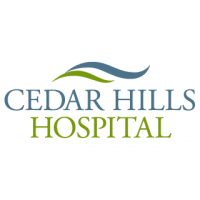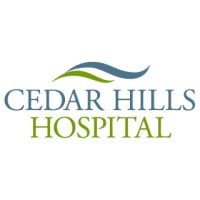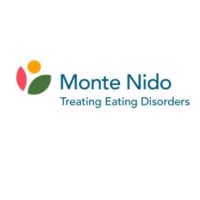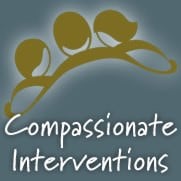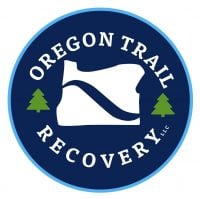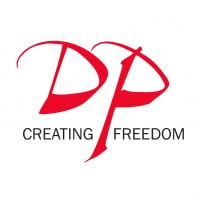Pacific Alcohol and Drug Counseling
Drug Rehab Center in Portland, Oregon
Pacific Alcohol and Drug Counseling is a highly-accredited addiction treatment center in Portland, Oregon, offering personalized and evidence-based therapies, extended care and aftercare services, and comprehensive family counseling to individuals struggling with alcohol and drug abuse and their families.
About This Portland, OR Facility
Pacific Alcohol and Drug Counseling is an addiction treatment facility located in Portland, Oregon. Established in 1989, this center offers services to individuals suffering from opioid addiction, substance abuse, and drug addiction. With a focus on providing comprehensive treatment and support to their clients, Pacific Alcohol and Drug Counseling accepts private health insurance for their various levels of care, which include aftercare support, drug rehab, intensive outpatient programs, and outpatient programs.
The treatment methods offered at Pacific Alcohol and Drug Counseling aim to address the challenges associated with addiction and substance abuse. Through personalized treatment plans, individuals can receive the help they need to overcome their addictions. Whether it is opioid addiction or general substance abuse issues, the facility provides a holistic approach that considers each client's well-being in mind. By offering services such as aftercare support, drug rehabilitation programs, intensive outpatient programs, and outpatient programs, Pacific Alcohol and Drug Counseling strives to provide the necessary tools for lasting recovery.
Genders
Ages
Modality
Additional
Conditions and Issues Treated
Substance abuse refers to the intensive and inappropriate use of psychoactive substances. Psychoactive substances are those that affect brain function. These include illegal drugs, alcohol, and even the excessive use of prescription drugs. The overuse of psychoactive substances leads to severe physical or psychological dependence. It also affects the social life and relationships of the affected individual. Substance abuse is treatable.
The duration of treatment at Pacific Alcohol and Drug Counseling in Portland can require weeks or even months depending on the severity of the condition as there is a risk of relapse. Treatment options include medications, counseling sessions, various types of behavioral therapy, and group therapy in different combinations.
Addiction to prescription opioid painkillers like oxycodone and hydrocodone, and illicit opioids such as heroin, leads to potentially life-threatening withdrawal symptoms when discontinued. Opioid addiction treatment typically involves an inpatient stay at facilities like Pacific Alcohol and Drug Counseling to make sure they get through withdrawal safely. Treatment also includes comprehensive mental health counseling.
Levels of Care Offered
This center offers a variety of custom treatment tailored to individual recovery. Currently available are Aftercare Support, Drug Rehab, Intensive Outpatient, Outpatient, with additional therapies available as listed below.
An intensive outpatient program is a good option for someone in Oregon with a milder or less severe addiction. An IOP may involve daily meetings at a treatment facility, along with personal counseling and peer meetings. Some IOP programs offer half-day treatment, while others offer full-day programs. Pacific Alcohol and Drug Counseling‘s IOP is customized per individual.
Outpatient programs are the standard for addiction treatment. About 9 in 10 U.S. adolescents entering addiction treatment enroll in these programs, so you’re not alone in Portland, OR. Treatment is delivered in different settings – offices, clinics, and primary care clinics.
Facilities offer a variety of services, such as individual and group counseling and family therapy. During the sessions, you work with a team of experts that include: General physicians, Psychiatrists, Social Workers, and Psychologists. The main goals of outpatient recovery programs are to help addicted individuals reduce drug use and addictive behaviors, eventually becoming entirely sober.
Aftercare comprises services that help recovering addicts readjust to normal day-to-day Oregon activities. It can last a year or even longer. Services include individual and family counseling, medications to reduce cravings, and treatment of psychiatric and other medical conditions. Aftercare support begins once you have completed earlier stages of treatment.
Pacific Alcohol and Drug Counseling‘s Therapies & Programs
Recovering from addiction involves recovering relationships as well. One of the most common areas of stress and damage during addiction is in intimate relationships. Couples therapy at Pacific Alcohol and Drug Counseling can rebuild trust and joy that may have been damaged. Addiction involves everyone in the family, not only the addict.
Family roles can change in damaging ways that may require professional help to rebalance. Successful intimate relationships can decrease the chances for relapse by ensuring a healthy environment after rehab in Portland, OR.
Addiction and alcoholism affect the entire family. For this reason, family therapy is vital to a person’s recovery from addiction. In contrast to couples counseling, family therapy at Pacific Alcohol and Drug Counseling may include siblings, children, parents, and other significant people in the recovering person’s life. Family support is one of the most important pillars of recovery.
Many people turn to drugs and alcohol as a way of processing trauma that has affected them in the past. Trauma can include abuse, neglect, the loss of a loved one and other unpleasant incidents. Trauma therapy at Pacific Alcohol and Drug Counseling helps patients process trauma. It gives them the tools to deal with it in a healthier manner.
Dialectical behavioral therapy (DBT) is a type of Cognitive Behavioral Therapy that focuses on eliminating specific negative thoughts such as suicidal thoughts that can potentially lead to an individual inflicting self-harm. It is useful in the treatment of patients exhibiting uncontrollable emotions, intense mood swings, and borderline personality disorders.
The term “Dialectic” means the integration of opposites. In the substance abuse context, DBT refers to accepting the patient’s addiction and working to change their thoughts and behavior. It improves life skills such as controlling the intense emotions without reacting impulsively, resolving the interpersonal conflicts effectively, and promoting awareness about self and others.
Cognitive Behavioral Therapy (CBT) examines the relationship between a patient’s thoughts, feelings and behaviors. Pacific Alcohol and Drug Counseling aims to establish a healthy response to thoughts and feelings as an alternative to turning to drugs and alcohol. It also promotes healthy communication between addicts and those around them. It is and effective therapy for people suffering with all types of addictions.
Rational Emotive Behavior Therapy (REBT) is a type of cognitive therapy. It is based on the principle that irrational thoughts are responsible for the emotional and behavioral changes in addiction. So, the therapy starts with identifying the underlying irrational thoughts. These thoughts are then challenged and opposed logically and then replaced with positive thoughts. It also helps to change unwanted behavior with techniques such as meditation.
By imparting positive thoughts and emotions, Rational Emotive Behavior Therapy (REBT) makes the individual self-reliant with a capacity to handle the emotional and behavioral issues in future by themselves without professional help. This self-dependence benefits the patients and prevent relapses.
The recovery technique used by Alcoholics Anonymous is the 12 step program, but it can relate to any form of addiction. The 12 steps that addicts must take on the road to recovery are explained. Measures include acknowledging that you have a problem and agreeing to turn around your life. The curriculum, instructed by Pacific Alcohol and Drug Counseling, also requires a belief in a greater power and making amends to others.
Contingency Management (CM), also called motivational incentives, is a type of pure behavioral therapy. It’s based on the idea that behavior is shaped, motivated, or controlled by its outcomes. CM is a clinical application at Pacific Alcohol and Drug Counseling of operant conditioning, which helps clients eliminate unwanted behaviors by the use of positive and negative reinforcement.
Payment Options Accepted
For specific insurance or payment methods please contact us.
Is your insurance accepted?
Ask an expert, call (888) 674-0062
Additional Details
Specifics, location, and helpful extra information.
Portland, Oregon 97223 Phone Number(503) 624-9545 Meta DetailsUpdated November 25, 2023
Staff Verified
Patient Reviews
There are no reviews yet. Be the first one to write one.
Portland, Oregon Addiction Information
Oregon’s drug abuse rates are higher when compared to other states in the country, and currently ranks 5th in the nation for drug-related health issues. Marijuana and prescription opioids are among the top drugs most often abused by teenagers in Oregon. Alcohol abuse in the state is also higher than average; over 6.25% of residents abuse alcohol every year.
The drug addiction problem in Portland, OR, is relatively inadequate. Over 124,000 people in Portland reported using illicit drugs in the past month of 2014. Additionally, over 2,200 people in Portland died from drug overdoses in 2016. Drug addicts often turn to crime to get money to buy drugs, which can negatively impact the community. There are many types of treatment available in Portland including inpatient and outpatient care and 12-step programs.
Treatment in Nearby Cities
- Hermiston, OR (171.2 mi.)
- Olivehurst, OR (442.3 mi.)
- Prineville, OR (123.1 mi.)
- Troutdale, OR (20.4 mi.)
- Shedd, OR (68.7 mi.)
Centers near Pacific Alcohol and Drug Counseling
The facility name, logo and brand are the property and registered trademarks of Pacific Alcohol and Drug Counseling, and are being used for identification and informational purposes only. Use of these names, logos and brands shall not imply endorsement. RehabNow.org is not affiliated with or sponsored by Pacific Alcohol and Drug Counseling.


